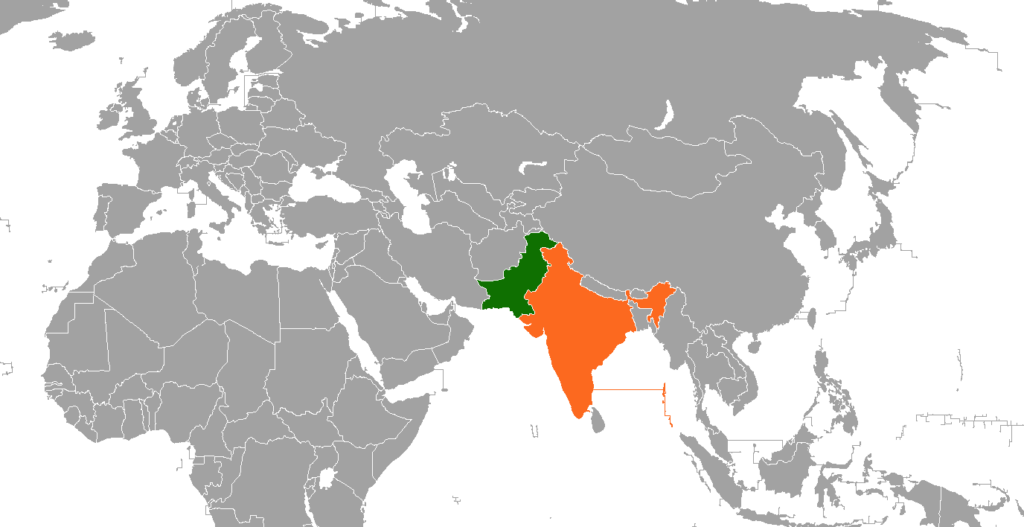India launched a series of precision strikes on militant infrastructure across Pakistan and Pakistan-administered Kashmir in the early hours of 6 May, marking a significant escalation in the ongoing standoff following the 22 April Pahalgam massacre that claimed 28 lives.
Codenamed ‘Operation Sindoor’, the strikes were carried out at 1:44 am, targeting nine locations including Muzaffarabad, Kotli, Bahawalpur, and Muridke. Indian officials stated that the operation was a tri-services effort involving the Army, Navy, and Air Force, utilising loitering munitions—commonly referred to as suicide drones—to neutralise terrorist infrastructure. The Ministry of Defence described the action as “focused, measured, and non-escalatory,” emphasising that no Pakistani military facilities or civilian establishments were targeted.
The strikes were a direct response to the Pahalgam attack, where gunmen in army fatigues opened fire on a group of tourists in the Baisaran Valley, predominantly targeting Hindu pilgrims. India attributed the attack to Pakistan-based militant groups, specifically Lashkar-e-Taiba and its affiliate, The Resistance Front. Investigations by Indian authorities, including the National Investigation Agency, linked the perpetrators to safe houses in Muzaffarabad and Karachi, suggesting support from Pakistan’s Inter-Services Intelligence.
Pakistan’s military spokesperson, Lt Gen Ahmed Sharif Chaudhary, confirmed the Indian strikes, stating that missiles hit areas in Kotli, Muridke, Bahawalpur, and Muzaffarabad. He reported civilian casualties, including the death of a child in Ahmedpur East and injuries to several others. Pakistan condemned the strikes as an unprovoked act of aggression, with Prime Minister Shehbaz Sharif labelling them a “cowardly act of war” and vowing a robust response.
In retaliation, Pakistan initiated artillery fire along the Line of Control, particularly in the Bhimber Gali sector of the Poonch-Rajauri area. The exchange of fire has led to heightened tensions along the border, with both nations placing their armed forces on high alert. Pakistan also declared a state of emergency in its Punjab province and suspended commercial flights, citing security concerns.
India’s National Security Advisor, Ajit Doval, briefed his U.S. counterpart and Secretary of State Marco Rubio shortly after the operation, underscoring India’s stance on counterterrorism and its commitment to regional stability. The United Nations Secretary-General, António Guterres, expressed deep concern over the escalating tensions, urging both nations to exercise maximum restraint.
The international community has responded with apprehension. Former U.S. President Donald Trump described the situation as “a shame,” while UK MP Stella Creasy highlighted the risk to civilians and called for immediate de-escalation. The strikes have also disrupted air travel, with several international flights rerouted or cancelled due to the volatile security environment.
Domestically, India has ramped up its civil defence preparedness. The Ministry of Home Affairs announced ‘Operation Abhyaas,’ a nationwide emergency drill scheduled for 7 May, encompassing 244 districts. The exercise aims to test the country’s readiness for potential escalations, including air raid protocols, blackout simulations, and civilian emergency response training.
The Pahalgam attack has significantly strained India-Pakistan relations, leading to a series of diplomatic and economic retaliations. India expelled Pakistani diplomats, suspended the Indus Waters Treaty, and closed its borders to Pakistani nationals. In response, Pakistan suspended the Shimla Agreement, imposed trade restrictions, and closed its airspace to Indian aircraft.




 Targeted Strikes Amid Escalating Kashmir Tensions
Targeted Strikes Amid Escalating Kashmir Tensions 